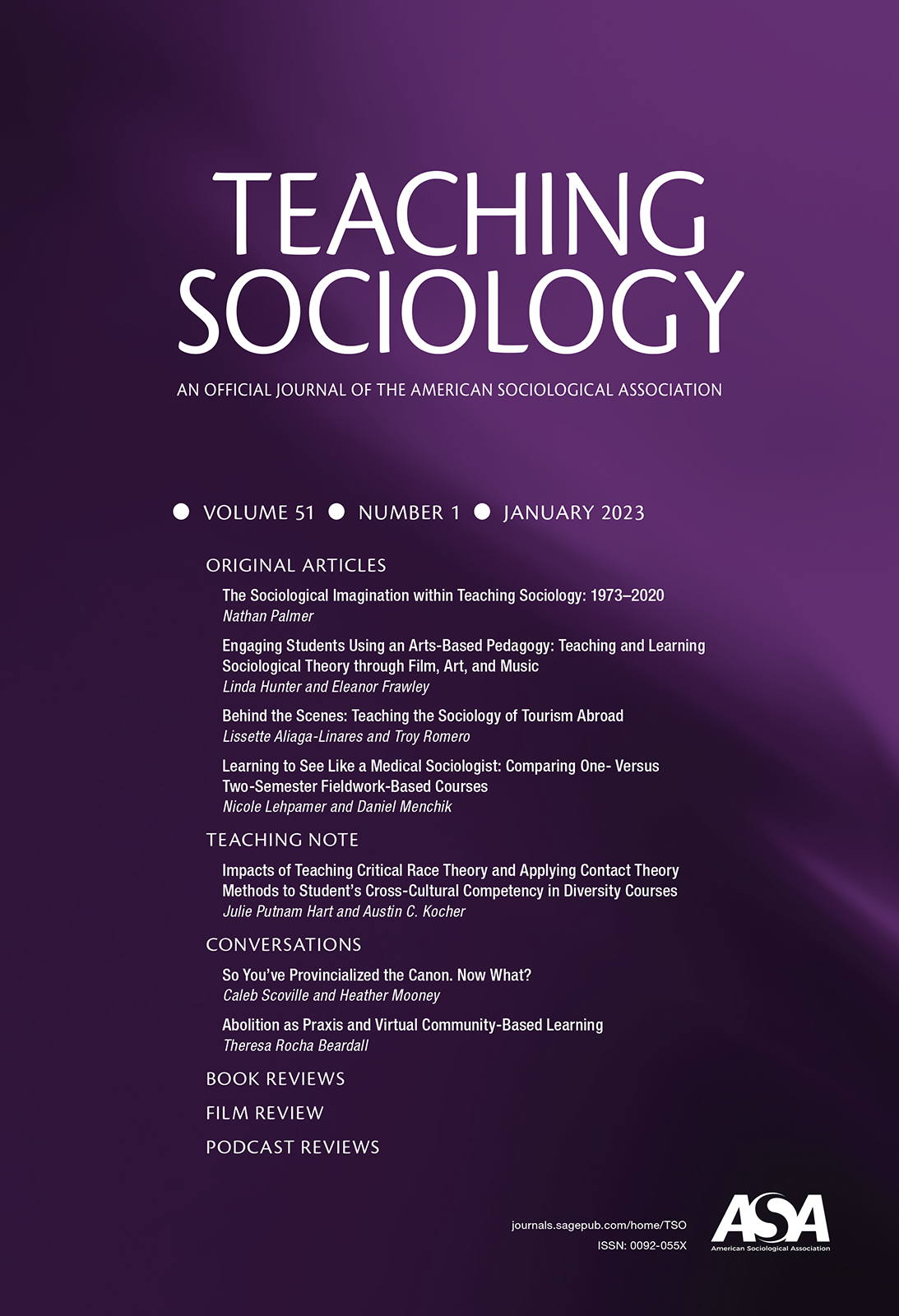
Socius
Sociological Research for a Dynamic WorldSociology
The American Sociological Association (ASA), founded in 1905, is a non-profit membership association dedicated to advancing sociology as a scientific discipline and profession serving the public good. With 12,000 members, ASA encompasses sociologists who are faculty members at colleges and universities, researchers, practitioners, and students. About 20 percent of the members work in government, business, or non-profit organizations. ASA hosts an annual meeting with more than 6,000 participants and publishes 14 professional journals and magazines.
As the national organization for sociologists, ASA, through its Executive Office, is well positioned to provide a unique set of services to its members and to promote the vitality, visibility, and diversity of the discipline. Working at the national and international levels, ASA aims to articulate policy and implement programs likely to have the broadest possible impact for sociology now and in the future.
 |  |  |  |  |  | |
 |  |  |  |  |  | |
 |  |
Submit your manuscript today at https://mc.manuscriptcentral.com/srd.
Socius: Sociological Research for a Dynamic World is an open access journal that aims to make new research readily available. It provides an online forum for the rapid dissemination of peer-reviewed empirical work, produced in time to be relevant to ongoing debates. Socius is a place to find fresh ideas, early discoveries, and open theoretical problems that can pose new challenges for social science. Committed to an efficient peer review process and open access, Socius’s online format ensures that all scientifically sound sociological research from any subfield can be published, without the volume constraints imposed by traditional print limits. Traditional manuscript styles are welcome, but we strongly encourage short papers and those providing interesting empirical findings that may spark innovation and future work.
| Tim F. Liao | University of Illinois, USA |
| Maria Abascal | New York University, USA |
| Sharla N. Alegria | University of Toronto, Canada |
| Steven Elias Alvarado | University of Notre Dame, France |
| Camila Huerta Alvarez | University of California-San Diego, USA |
| Latrica E. Best | Boston College, USA |
| Jenifer L. Bratter | Rice University, USA |
| Jenny L. Davis | Vanderbilt University, USA |
| Per Engzell | University College London, UK |
| Angel Alfonso Escamilla Garcia | Yale University, USA |
| S. Michael Gaddis | NWEA, USA |
| Patrick Trent Greiner | Vanderbilt University, USA |
| Jill Ann Harrison | University of Oregon, USA |
| Claire W. Herbert | University of Oregon, USA |
| Melanie M. Hughes | University of Pittsburgh, USA |
| Christina Kamis | University of Illinois at Urbana-Champaigne, USA |
| Danya Lagos | University of California-Berkeley, USA |
| Reuben A. Buford May | University of Illinois Urbana Champaign, USA |
| Joel Mittleman | Princeton University, USA |
| Salvatore J. Restifo | University of Texas Rio Grande Valley, USA |
| Fabio Rojas | Indiana University-Bloomington, USA |
| Luis Romero | Texas Christian University, USA |
| Vincent J. Roscigno | Ohio State University, USA |
| David R. Schaefer | University of California - Irvine, USA |
| Landon Schnabel | Cornell University, USA |
| Jiannbin Lee Shiao | University of Oregon, USA |
| Kristen Shorette | Stony Brook University, USA |
| Desi Small-Rodriguez | University of California-Los Angeles, USA |
| Stefan Vogler | University of Illinois, Urbana-Champaign, USA |
| Nicholas Hoover Wilson | Stony Brook University, USA |
| Yongjun Zhang | Stony Brook University, USA |
Manuscript submission guidelines can be accessed on Sage Journals.